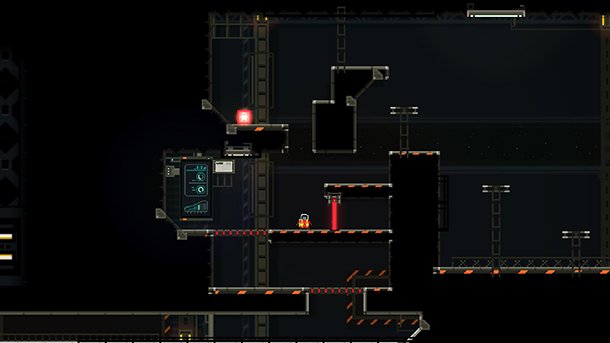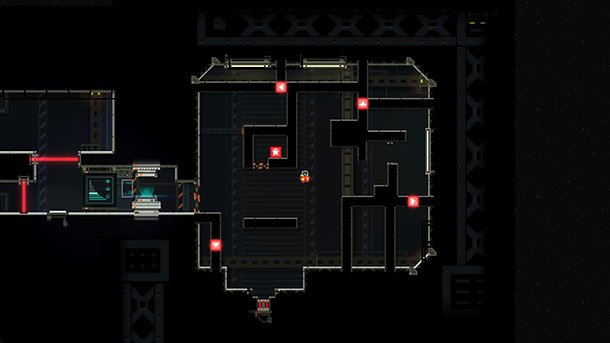Hack computer systems with sound waves in indie platformer Orbit

At first glance, Orbit doesn't seem to have a hook. The game, made by a three-person team based out of Cambridge, England, features a boiled-down pixel aesthetic and squat, jumping character. In the long line of platformers that share DNA with Mario and Luigi, this is so far pretty unremarkable. Don't dismiss Orbit just yet, though—plug in your headphones, watch the video below, and pay attention.
It's the sound that makes Orbit stand out—fitting, since developer Michael Manning works as a sound designer in his day job. For his first independent project, Manning's attention has made the pitter-patter of feet and buzz of consoles pop like an auditory lens flare. In the game, a lone engineer works his way through a series of defense satellites, trying to bring them back online after a mysterious outage. The engineer will have various drones to control to help him solve puzzles, fight enemies, and repair the ailing satellites.
Sound also becomes a gameplay mechanic. The engineer's Smart Drone will be able to hack computer systems. Instead of the frequently abused “network of tubes,” Orbit uses an abstract audio hacking system that chirps out a tune and asks you to copy it.

“The biggest thing is about giving the player a bunch of toys to play with,” Manning tells PC Gamer. “You may find yourself in a room which is full of humanoid enemy AI; the player could choose to avoid their line of sight and use their platforming skill to run past them, or the player can send a drone in to attempt to open an airlock and blow them all out into space. Or the player could hack a turret and bait the AI into its path… that sort of thing.”
Hacking systems in real-time keeps the game snappy and moving. Think of it less like the network nodes from Deus Ex and more like using Link's ocarina to hack light switches in Gunpoint.
The video above is a snippet of the tutorial level, so none of the next-level mechanics are being shown just yet. Orbit developers Manning, artist Tyler Barber, and programmer Adam Bradley don't have plans for a crowdfunding campaign, opting instead to spend their nights and weekends on the game and let it into the wild only when it's ready. You can keep track of the game at their Twitter account until the game is released—hopefully later this year.
The biggest gaming news, reviews and hardware deals
Keep up to date with the most important stories and the best deals, as picked by the PC Gamer team.

